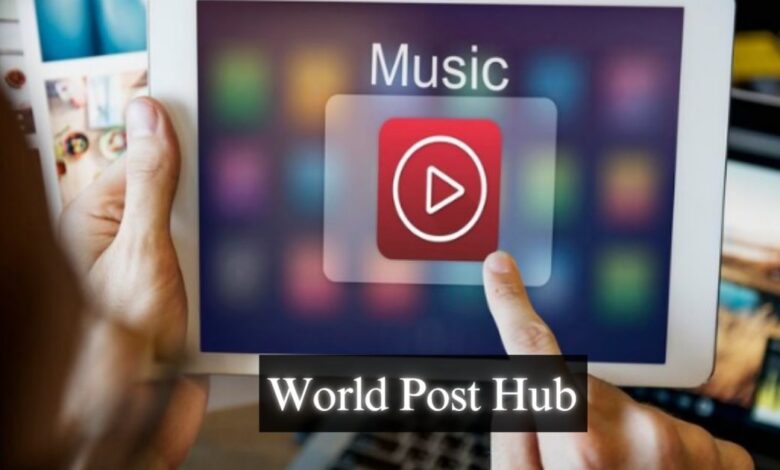How YouTube to MP3 Converters Work

The advent of online streaming platforms has revolutionized the way we consume media, with YouTube being at the forefront. However, alongside its vast library of content, users have sought ways to convert YouTube videos into MP3 audio files for offline listening. This article delves into the intricacies of YouTube to MP3 converters, exploring their functionality, legality, ethical implications, and the broader implications they pose for the digital landscape.
How YouTube to MP3 Converters Work
YouTube to MP3 converters are online tools or software applications that extract audio from YouTube videos and convert it into MP3 format. These converters typically work by extracting the audio stream from the video file and encoding it into a downloadable MP3 file. Users can then save the MP3 file to their devices for offline playback.
The Legal Landscape
The legality of YouTube to MP3 converters is a contentious issue, primarily due to copyright concerns. While some argue that such converters facilitate copyright infringement by enabling users to download copyrighted music without permission, others assert that they fall within the realm of fair use, particularly for non-commercial and personal use. Several legal cases have emerged around the world, with courts offering varying interpretations of the law.
Ethical Considerations
Beyond legal considerations, the use of YouTube to MP3 converters raises ethical questions regarding artists’ rights and the impact on content creators. While users may perceive these converters as a convenient way to access music, they may undermine the livelihoods of musicians and other creators by circumventing legitimate streaming platforms and depriving them of royalties.
Alternatives to YouTube to MP3 Converters
Despite the popularity of YouTube to MP3 converters, there are alternative ways to access music legally and ethically. Legal music streaming platforms offer vast libraries of music for subscription or ad-supported listening. Additionally, some artists and labels provide free downloads of their music on their websites or social media channels. Despite the popularity of YouTube to MP3 conversion, several alternatives exist for accessing music and audio content legally and ethically. Subscription-based music streaming services such as Spotify, Apple Music, and Amazon Music offer vast libraries of licensed music for a monthly fee. Additionally, many artists and record labels provide free streaming options through platforms like SoundCloud or Bandcamp, where users can access their music legally.
Risks and Concerns
Using YouTube to MP3 converters comes with inherent risks, including exposure to malware and security vulnerabilities. Additionally, the quality of converted audio files may vary depending on the converter used and the source video’s audio quality. Moreover, users should be aware of the potential legal consequences of downloading copyrighted material without proper authorization. Despite their convenience, YouTube to MP3 converters pose certain risks and security concerns for users. Many of these converters are hosted on third-party websites, which may expose users to malware, spyware, or other security threats. Additionally, the quality of converted MP3 files may vary, and users may inadvertently download low-quality or corrupted audio files.
Regulation and Enforcement
Governments and online platforms have taken various measures to regulate and enforce copyright laws related to YouTube to MP3 converters. Some countries have enacted legislation specifically targeting online piracy, while platforms like YouTube have implemented policies to prevent unauthorized downloading and distribution of copyrighted content.
The Future of YouTube to MP3 Converters
Looking ahead, the future of YouTube to MP3 converters remains uncertain, with technological advancements, legal developments, and evolving consumer behaviors shaping the landscape. While some predict increased enforcement and stricter regulations, others anticipate innovations in streaming technology that may render converters obsolete.
Future Trends and Developments in YouTube to MP3 Conversion
Looking ahead, the future of YouTube to MP3 conversion is shaped by technological advancements, legal developments, and evolving consumer behaviors. While enforcement measures may become more stringent, technological innovations could also lead to new methods of accessing and distributing audio content. Moreover, changes in consumer preferences and industry dynamics may influence the demand for YouTube to MP3 conversion and alternative modes of music consumption.
Ethical Debates Surrounding the Practice
The use of YouTube to MP3 converters has sparked ethical debates among users, content creators, and industry stakeholders. While some argue that it provides a convenient way to access music for personal use, others contend that it violates the rights of artists and content creators by circumventing copyright laws. Moreover, the ethical implications extend to issues of fair compensation for creators and the sustainability of the music industry as a whole.
Government Regulations and Enforcement Measures
Governments and regulatory bodies have implemented various measures to address copyright infringement and piracy related to YouTube to MP3 conversion. Legislation such as the Digital Millennium Copyright Act (DMCA) in the United States provides a framework for protecting copyright holders and enforcing penalties for infringement. Additionally, platforms like YouTube have implemented algorithms and content ID systems to identify and mitigate unauthorized distribution of copyrighted material.
Impact on Artists and Content Creators
The widespread use of YouTube to MP3 converters raises significant concerns regarding the impact on artists and content creators. By enabling users to access music or audio content without proper licensing or compensation, these converters undermine the economic viability of the music industry. Artists rely on royalties from legitimate streaming platforms and sales of their music to sustain their livelihoods, and unauthorized distribution through MP3 conversion deprives them of essential revenue.
Popular Tools and Platforms for YouTube to MP3 Conversion
A plethora of online platforms and software tools cater to the demand for YouTube to MP3 conversion. These tools range from simple web-based converters to sophisticated software applications that offer additional features and customization options. Some popular platforms include websites like YTMP3, ClipConverter, and software applications like 4K YouTube to MP3 and Freemake YouTube to MP3 Boom.
Legality and Copyright Considerations
One of the foremost considerations in YouTube to MP3 conversion is the legality and potential copyright implications. While YouTube provides a platform for sharing and streaming content, it also operates under strict copyright policies. Converting YouTube videos to MP3 files may infringe upon the rights of content creators, as it involves reproducing copyrighted material without authorization. However, the legality of such conversions varies depending on factors such as jurisdiction and the intended use of the MP3 files.
Conclusion
YouTube to MP3 converters represent a complex intersection of technology, law, and ethics in the digital age. While they offer users a convenient means of accessing music, they also raise significant legal and ethical concerns regarding copyright infringement and artists’ rights. As the debate continues, it is essential for users to consider the broader implications of their actions and strive for responsible consumption of online content. YouTube to MP3 conversion presents a multifaceted landscape encompassing legal, ethical, and technological considerations. While it offers users a convenient means of accessing audio content, it also raises significant concerns regarding copyright infringement, artist rights, and industry sustainability. Navigating these complexities requires a balanced approach that respects the rights of creators while also acknowledging the evolving nature of digital media consumption. As technology continues to evolve and regulatory frameworks adapt, the debate surrounding YouTube to MP3 conversion will undoubtedly persist, shaping the future of online content distribution and consumption.





